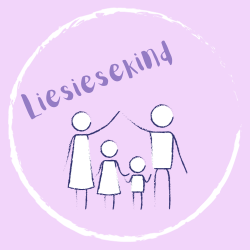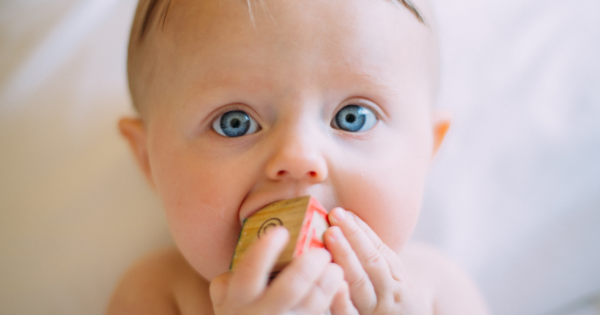Teething in babies can be the cause for significant discomfort and sometimes pain. Most babies start teething from six months, but this could vary from one child to the next. My boy was a late bloomer and his first tooth appear shortly before his first birthday. Parenting comes with many obstacles and a teething baby is one of them. It is not easy to see your child suffer in any way, and it is up to us to make it easier for them to deal with.
Some possible signs of teething
- Irritability and fussiness
- Excessive drooling (I could hardly keep up with washing baby bibs)
- Chewing or biting on everything
- Swollen and inflamed gums
- Signs of a tooth below his gums
- Rubbing his face more frequently
- Difficulty sleeping
- Refusal to eat
- Pulling his ears
- Slightly high temperature, but no fever
A lot of parents think that teething causes diarrhea and fever, however, researchers proclaim that these symptoms are not linked to teething. When your little one has a rectal temperature of 38 Celsius degrees or 100.5 Fahrenheit, consult with your doctor.
Tips and tricks for easing the symptoms of teething in babies

What remedies can you try for soothing teething in babies?
If your baby seems to be especially fussy or showing signs of discomfort, you can try these basic tips:
1. Rubbing his gums
You can use wet gauze or your finger to gently rub his gums. Remember, too much pressure could be painful.
2. Use cold things
You can use a cold teething ring or spoon that you have kept in the fridge (not frozen) to offer some relief.
3. Opt for over the counter pain medication
If nothing you are doing is bringing any relief you can give him infant or child-friendly over the counter pain medication like acetaminophen (Tylenol, etc.) or ibuprofen (Motrin, Advil, etc.). Just liaise with your doctor or pharmacist about which medicines are safe according to his age.
4. Consider investing in a Baltic amber necklace
When my boy started teething, he was drooling excessively and he experienced quite a bit of discomfort. I tried different gels, powders, and other teething remedies, but none of them seem to have given him relief, not for long at least. I have heard about Baltic amber necklaces and their effectiveness and decided to buy one from our local pharmacy. These necklaces are manufactured with Baltic amber or tree resin that is fossilized.
Theoretically, when your little one wears it, his body heat releases a tiny amount of oil which contains succinic acid. This is absorbed into his bloodstream and once the oil is absorbed, it is said to cause an analgesic effect for sore and swollen gums.
I am not sure if this will work for you. But it has definitely worked for us. The drooling disappeared and JD went through all his teething episodes without any noticeable pain or discomfort.
5. Giving him things to chew on
What you can give your baby to chew on
- A damp wash cloth.
- A cool pacifier.
- Teething blanket.
- Applesauce or yogurt (if he is already on solids).
- Silicone teethers.
What you should not give your baby to chew on.
- Avoid small treats or toys since they can present a choking hazard.
- Steer clear from teething aids that has small pieces that can break off easily or dangling parts (again, choking risk).
- Avoid things that are to hard and difficult to chew on since it could do more harm than good.
- Check that toys or teething aids do not contain BPAs lead, phthalates, and cadmium.
- Before giving any food based remedies, first check with your pediatrician.
What treatments should be avoided
To ensure the safety of your baby, do not use:
- Over the counter and homeopathic remedies – The benefits of topical gels and teething tablets are not yet demonstrated. In many homeopathic remedies the ingredient belladonna can result in seizures and difficulty breathing.
- Teething medications that contain lidocaine or benzocaine – These ingredients can be toxic, even fatal to a baby.
When is it necessary to call your doctor?
Teething is something that parents can treat at home. However if your baby persists to experience discomfort or the teething starts interfering with his drinking or eating, it is recommended to speak to your doctor.
Tips on caring for baby’s teeth
- Use a soft cloth to gently wipe over your baby’s gums twice daily. Early in the morning after his first feed and before bedtime. This could prevent bacteria or food build-up in his mouth.
- Once the first teeth made their appearance, use an appropriate soft bristle toothbrush (ages 0-3) to clean his teeth twice daily.
- For babies younger than three, you can use a tiny smear of fluoride toothpaste (like a grain of rice) to clean his teeth.
- After age two to three you can use a pea size amount of fluoride toothpaste for brushing his teeth.
Conclusion
I hope you have found this article helpful. Teething can be unpleasant but it is something that every parent will have to deal with and with these tips you can make the experience less uncomfortable and painful for your little one.








Be the first to reply